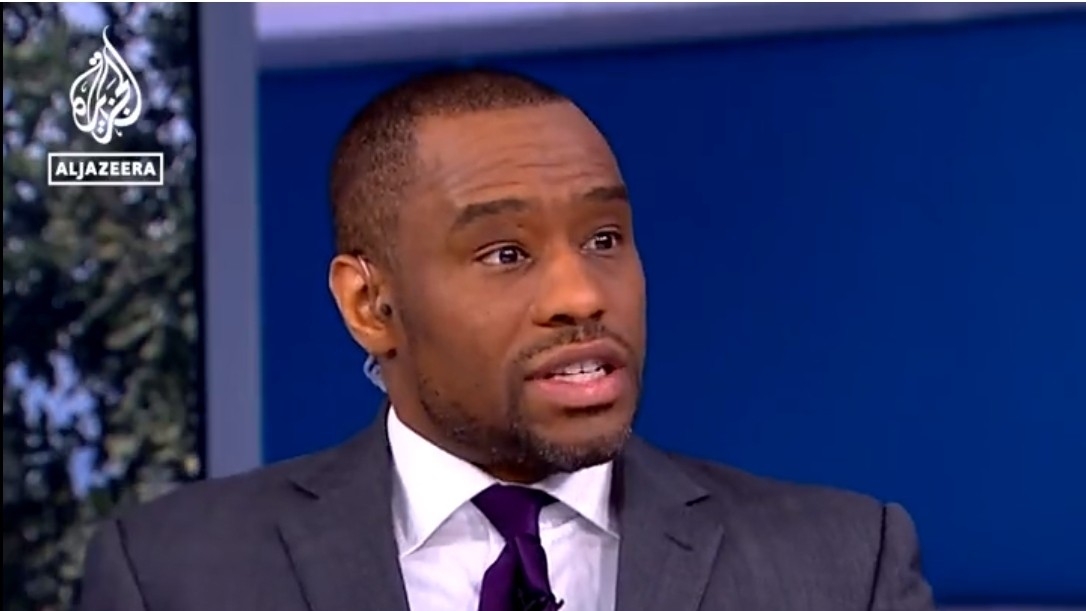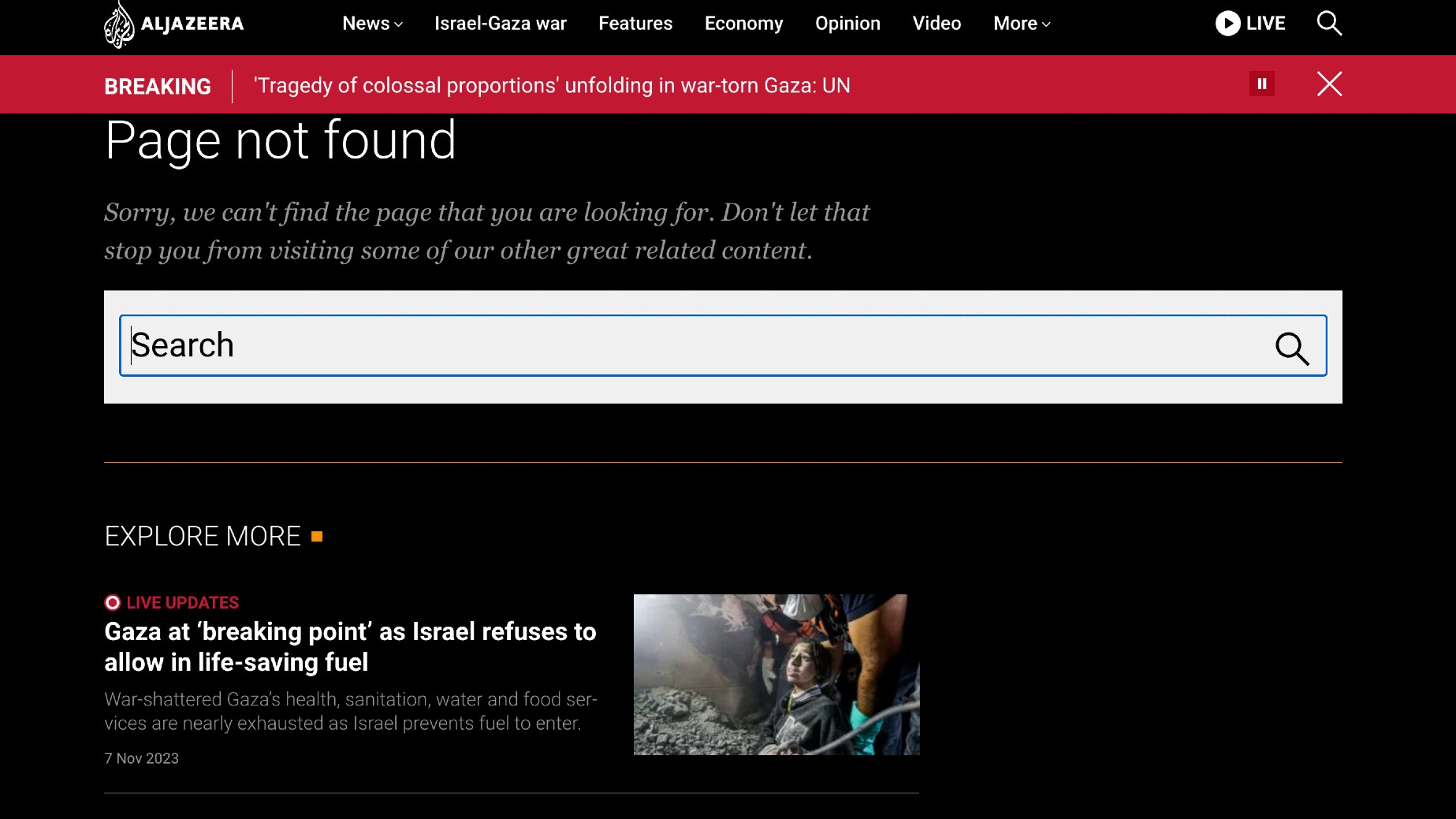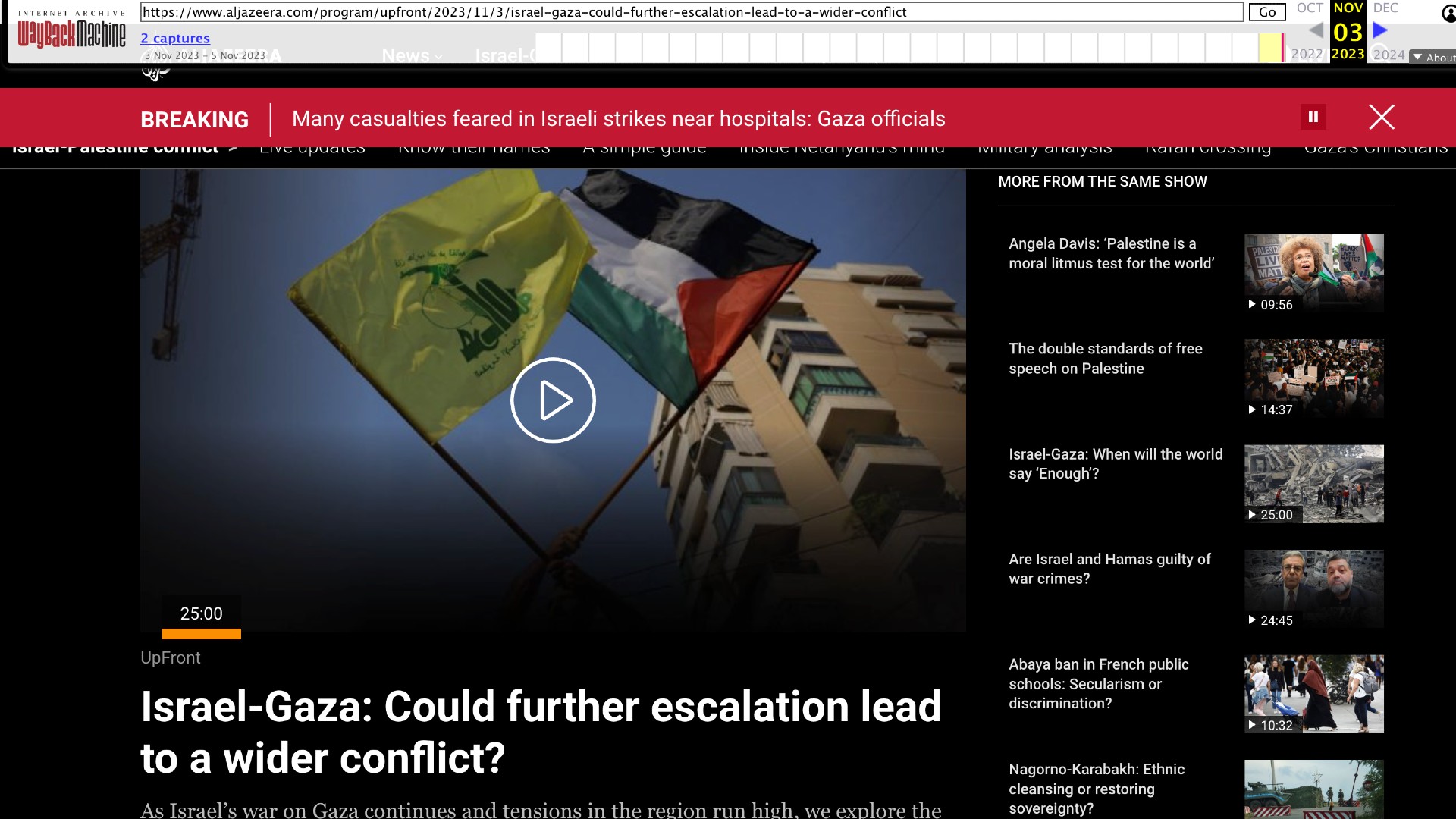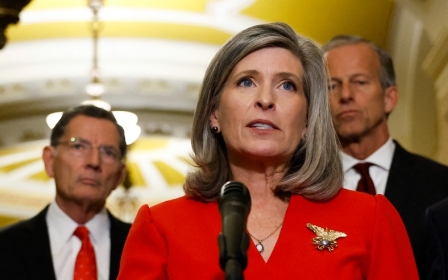Al Jazeera pulls video of show in which Saudi-Israel normalisation labelled 'suicidal'

Al Jazeera has removed a video of a programme from its website and YouTube channel in which a prominent Saudi Arabian academic and activist said it would be “suicidal” for Crown Prince Mohammed bin Salman to normalise relations with Israel.
The episode of UpFront, a discussion programme hosted by Marc Lamont Hill, featured Madawi al-Rasheed, a Saudi academic who is a visiting professor at the London School of Economics, and Matt Duss, executive vice president at the Washington-based Center for International Policy.
Titled "Israel-Gaza: Could further escalation lead to a wider conflict?", it was originally broadcast on Al Jazeera English on 3 November. It was published on the Al Jazeera website and on YouTube the same day it aired.
But by Sunday, the video had been removed from both platforms. A page on the website where the 25-minute show could previously be viewed instead said "Page not found".
UpFront's X and Facebook accounts have teased a 1:41-minute clip of the episode, and an audio version of the entire show remains online on Al Jazeera's website and on some podcast platforms.
It is unclear why the video programme has been removed.
On Monday, Rasheed tweeted to say she was waiting for Al Jazeera to explain why the video of the full episode had been withdrawn.
Middle East Eye understands that both guests on the show have asked Al Jazeera for an explanation, but have not received a response.
MEE contacted Al Jazeera and Marc Lamont Hill for comment, but had not received a response at the time of publication.
The Al Jazeera Media Network is funded and owned by the government of Qatar but has long maintained that it is editorially independent.
Rasheed, who is also the co-founder and spokesperson of the pro-democracy opposition group National Assembly Party (NAAS), told Middle East Eye: "I really don't care, as the situation and bloodshed is beyond belief and little Saudi-Qatari disputes are not relevant."
In the course of the discussion, Rasheed was asked by Hill whether she believed Saudi Arabia would normalise its relations with Israel, a move pushed by both the Trump and Biden administrations.
After Saudi Defence Minister Prince Khalid bin Salman's visit to Washington last week, Hill noted that National Security Council spokesman John Kirby said that the kingdom was "still committed" to the plan.
Rasheed said: "I think deep down, the crown prince of Saudi Arabia wants to move ahead, but he can't at the moment simply because of the devastation that every Saudi has seen on their screen, on social media."
'It would be a suicidal move for him to pursue any kind of normalisation with Israel under the current circumstances'
- Madawi al-Rasheed
Hill then asked Rasheed to clarify what she meant. "He would not probably survive as the future king of Saudi Arabia if he goes ahead and normalises in this context of war," she responded.
Rasheed also questioned why the normalisation of relations between Israel and seven Arab countries since 2020 are called peace treaties under the US-led Abraham Accords.
"If you look at UAE or Morocco, they've never been at war with Israel. So to call it a peace treaty is meaningless and inaccurate... If we are talking about a peace treaty, it should be between Israel and the people who are living on the ground," she said.
"The Abraham Accords projected a new era in the Middle East where peace will prevail. We are still at square zero, where war guns and air strikes are the language of the day. It is not peace that is being talked about. It's war."
US policy 'upended'
Duss, who served as Senator Bernie Saunders' foreign policy adviser from 2017 to 2022, said he agreed with Rasheed's assessment.
"It's important to keep in mind, Saudi Arabia, like most of the regimes in this region, live in fear of their people. And their people, at the popular level, there still is a lot of support for the Palestinian cause," he said.
Duss also noted that the Biden administration's pursuit of the Abraham Accords as a "security concept for the region" has been "upended" by the events of the past three weeks.
"The whole premise was that we can achieve stability, achieve American interests, box China out of the region through these defence deals. That is not going to work," he said.
"I think a lot of us who know this region and have studied it suspected it would not work. But my question is, does the Biden administration know it's not going to work?"
Middle East Eye propose une couverture et une analyse indépendantes et incomparables du Moyen-Orient, de l’Afrique du Nord et d’autres régions du monde. Pour en savoir plus sur la reprise de ce contenu et les frais qui s’appliquent, veuillez remplir ce formulaire [en anglais]. Pour en savoir plus sur MEE, cliquez ici [en anglais].






